M.S.W. concentration in clinical practice
The Master of Social Work (M.S.W.) clinical concentration at the VCU School of Social Work is dedicated to preparing skilled, compassionate and culturally responsive clinical social workers. Our program uniquely integrates a social justice framework with a rigorous focus on evidence-based treatments, ensuring graduates are equipped to address the complex mental health needs of diverse communities. We believe effective clinical practice must not only utilize the best available science but also actively challenge systemic inequities that impact well-being.
Our program's core philosophy is that mental health is a fundamental human right, and systemic inequities often create significant barriers to well-being. We believe that clinical social work must extend beyond individual and family therapy to address the broader social, economic and political factors that impact mental health. This perspective informs every course and field placement, challenging students not only to treat symptoms but also to advocate for a more just and equitable society.
This comprehensive approach ensures that our graduates are not only highly skilled clinicians but also compassionate agents of social change, ready to make a significant impact on the mental health landscape.
At VCU's School of Social Work, we commit to preparing professional social workers who engage our communities, initiate difficult dialogues and confront today's social inequities.
Availability and admissions
Online
- Full-time pathway (16 months): Fall start
- Full-time pathway (2 years): Fall start
- Advanced standing pathway (1 year): Summer start
- Part-time pathways (3 or 4 years): Fall, summer starts
On-campus
- Full-time pathway (2 years): Fall start
- Advanced standing pathway (1 year): Summer start
Application details + additional learning credentials
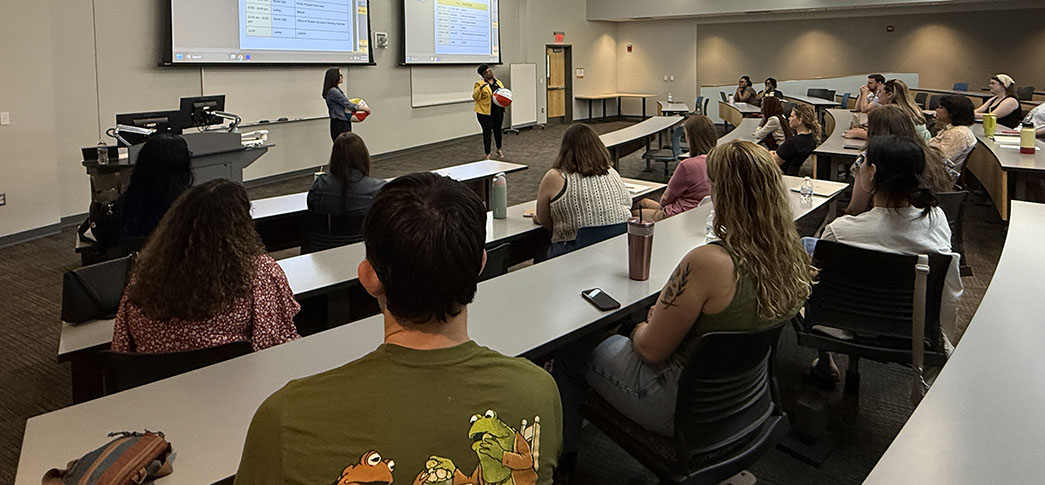
A group of advanced standing M.S.W. students during a summer orientation session.
Social justice in clinical practice
Social justice is woven into every aspect of our clinical training. Students learn to:
- Identify and challenge systemic oppression: We explore how racism, classism, sexism and other forms of discrimination contribute to mental health disparities.
- Practice with cultural humility: Rather than aiming for cultural competence, which can imply a mastery of different cultures, we foster a lifelong commitment to self-reflection and learning from clients' lived experiences.
- Employ a strengths-based approach: We focus on the inherent resilience and strengths of individuals and communities, rather than deficit-based models.
- Advocate for policy change: Students are encouraged to use their clinical insights to advocate for policies that promote mental health equity, such as improved access to care, affordable housing and living wages.
Program highlights
Diverse field placements
Students are placed in a variety of clinical settings, including hospitals, community mental health centers, schools and nonprofit organizations. These placements provide hands-on experience and exposure to diverse client populations.
Photo: Social work students interning at VCU Health.
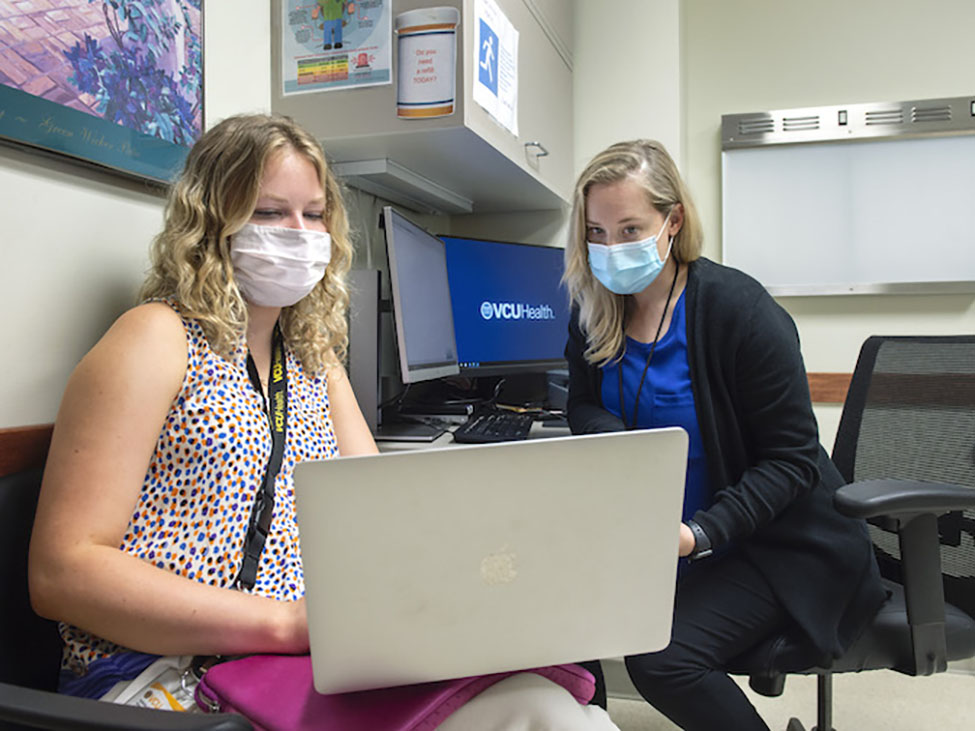

Expert faculty
Our faculty are active practitioners and researchers who bring real-world experience and cutting-edge knowledge into the classroom. They are committed to mentorship and fostering a supportive learning environment.
Photo: Qasarah Bey Spencer, Ed.D., the M.S.W. Program director, interacts during a class exercise.
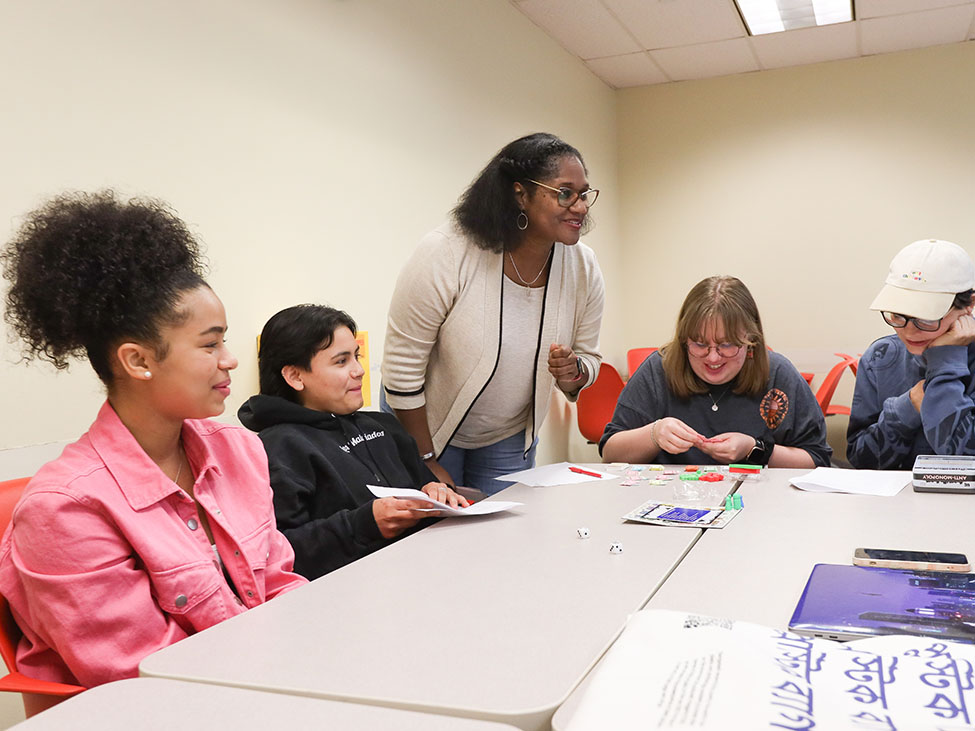

Commitment to anti-racist practice
We are dedicated to integrating anti-racist principles into all aspects of our curriculum and clinical training. Students are challenged to examine their own biases and develop culturally humble and responsive practice skills.
Photo: A student's infographic from a serious mental illness class, stressing an anti-racist lens.
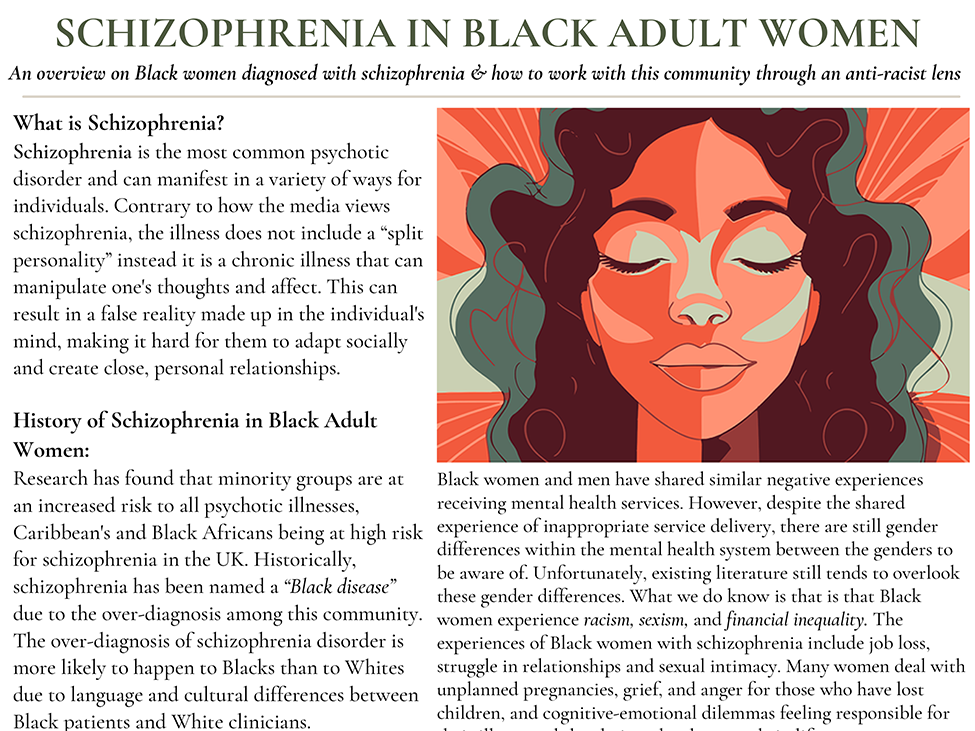

Learning objectives
Clinical practice and intervention
- Apply evidence-based treatments (EBTs) to a diverse range of mental health and substance use disorders across the lifespan.
- Conduct comprehensive, biopsychosocial-spiritual assessments to formulate clinical diagnoses and inform treatment planning.
- Utilize a variety of therapeutic modalities, including individual, group and family therapy, tailored to client needs and preferences.
Social justice and advocacy
- Analyze and address the impact of systemic oppression, such as racism, poverty and discrimination, on mental health outcomes.
- Advocate for policies and resources that promote mental health equity and reduce health disparities in marginalized communities.
- Develop and implement culturally humble and responsive interventions that respect and integrate clients' unique cultural backgrounds and identities.
Ethical and professional conduct
- Demonstrate ethical decision-making in complex clinical situations, adhering to the NASW Code of Ethics.
- Engage in self-reflection and professional development to continuously improve clinical skills and cultural competence.
- Collaborate effectively with interdisciplinary teams to provide holistic care and support to clients and their families.
Research and evaluation
- Critically evaluate current research on mental health interventions and apply findings to clinical practice.
- Use data and outcome measures to monitor client progress and evaluate the effectiveness of interventions.
Key competencies & behaviors
- 1Fa: make ethical decisions by applying the standards of the National Association of Social Workers Code of Ethics, relevant laws and regulations, models for ethical decision making, ethical conduct of research, and additional codes of ethics within the profession as appropriate to the context;
- 1Fb: demonstrate professional behavior; appearance; and oral, written, and electronic communication
- 3Ca: Use knowledge of the effects of oppression, discrimination, and trauma on development, course and recovery from clients' mental, emotional, and behavioral disorders and conditions
- 3Cb: *Articulate empathy and an appreciation of the lived experience of clients and their families who cope with significant dysfunction or distress across age, gender, ethnicity, race, ability, sexual orientation and class
- 3Cc: *Identify and apply appropriate clinical social work models with diverse client populations for engagement, assessment, intervention, and evaluation
- 3Fb: Demonstrate cultural humility by applying critical reflection, self-awareness, and self-regulation to manage the influence of bias, power, privilege, and values in working with clients and constituencies, acknowledging them as experts of their own lived experiences
-
4Fb: Apply research findings to inform and improve practice, policy, and programs
- 6Ca: Demonstrate reflexive assessment practices and the appropriate professional use of self with clients struggling with a range of mental, emotional and behavioral disorders and conditions
- 6Cb: Demonstrate the ability to form worker-client alliances, communicate empathetically, enhance motivation for change, and address internal/external barriers to change.
- 6Fa: Apply knowledge of human behavior and person-in-environment, as well as interprofessional conceptual frameworks, to engage with clients and constituencies
- 7Ca: Describe presenting characteristics and symptoms of the range of common mental, emotional, and behavioral disorders and conditions in children, youth, and adults
- 7Cb: Critically assess the role of theory and a risk and protective factors framework in offering explanatory perspectives on the etiology and course of mental, emotional and behavioral disorders and conditions
- 7Cc: Formulate differential diagnoses based on DSM 5 in consultation with clients, families and other providers as relevant
- 7Cd: Identify and articulate clients' strengths and vulnerabilities as part of the biopsychosocial multidimensional assessment
- 7Ce: Articulate implications of current knowledge about mental, emotional and behavioral disorders for relationship building and treatment planning in contemporary social work practice.
- 7Cf: Demonstrate familiarity with the evolution and major criticisms of labeling and contemporary diagnostic systems
- 7Ch: *Use empathy and sensitive interviewing skills to facilitate client’s identification of their strengths and areas of concern
- 7Ci: *Create a collaboratively-derived treatment plan aimed at improving psychosocial needs identified through assessment
- 7Fa: Apply theories of human behavior and person-in-environment, as well as other culturally responsive and interprofessional conceptual frameworks, when assessing clients and constituencies
- 7Fb: Demonstrate respect for client self-determination during the assessment process by collaborating with clients and constituencies in developing a mutually agreed-upon plan
- 8Cb: Match and apply intervention methods effectively and ethically with client system problems across diverse backgrounds.
- 8Fa: Engage with clients and constituencies to critically choose and implement culturally responsive, evidence-informed interventions to achieve client and constituency goals
- 8Fb: Incorporate culturally responsive methods to negotiate, mediate, and advocate with and on behalf of clients and constituencies
Example course assignments
The clinical track offers a variety of assignments that will help our students engage in practical applications. Many of these assignments are facilitated through an anti-racist and trauma-informed lens. Some assignments in our current coursework include:
Trauma and Social Work Practice: Theory, Assessment and Intervention
Assignment: Engage in reading groups
Students have described these reading groups as an organic opportunity to directly engage in course content and develop community with each other while immersing themselves in material. Also assigned in SLWK 764. Mental Health Practice.


Social Work Practice in Community Mental Health
Assignment: Observe a mental health agency
Students choose an agency that provides mental health services within a community. The agency and community can be at the discretion of the student. Students are challenged to intentionally explore a neighborhood that they are unfamiliar with, immersing themselves in a new culture to fully gain a well-rounded experience.
Students travel to the selected neighborhood over a period of time, documenting and recording their observations through a windshield survey method. This tool is typically used to evaluate a neighborhood’s social drivers, assessing variables such as access, environment and culture.


Treatment of SMI (Serious Mental Illness) Through a Trauma-Informed and Evidence-Based Perspective
Assignment: Research and create infographic
Students create an infographic and research serious mental illness (SMI) through an anti-racist lens. The goal of this assignment is for students to develop advanced knowledge about how specific populations diagnosed with SMI have experienced racism and oppression. It also provides an opportunity to consider oppression from an organizational perspective. Students, through this infographic assignment, present on how SMI is treated in other countries and also discuss how implicit bias must be navigated when working with individuals diagnosed with serious mental illness.


Neurobiology and Social Work
Assignment: Create 60-second video
Students create a 60-second video to educate fellow mental health practitioners on the connection between anti-racist practices and why a working knowledge of neurobiology is essential. Within this video, students must also discuss trauma. It is a lot of content to cover in 60 seconds, so students have to be intentional about what and how the information is delivered.


Meet some of your clinical instructors
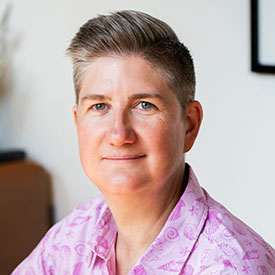

Cassie DeSena-Jacobs, D.S.W., LCSW, CCTP-II, M.S.
Assistant professor & director of Mental Health Initiatives


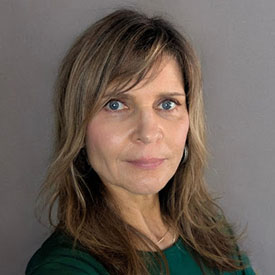

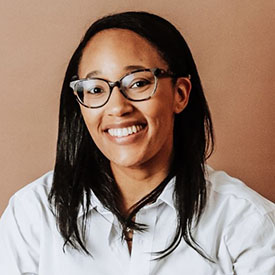

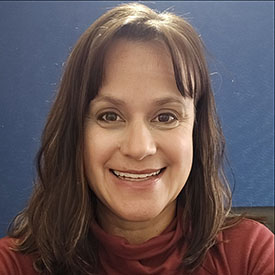

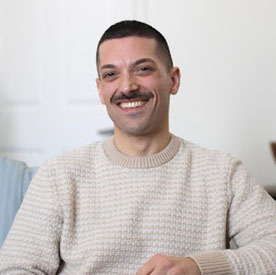



Clinical practice in action
Learn about these alumni and the work they are doing as clinical social work practitioners.
Destiny Fore
Focus: Child Welfare + Psychoeducation
Destiny is a foster parent coordinator at a treatment foster care agency, where she assesses the ability of potential foster parents to provide a nurturing, safe and trauma-informed home to meet the needs of youth in foster care. By providing psychoeducation, support and ensuring both the youth and family are given the proper services and resources to succeed and meet the goals of the youth, her work empowers and strengthens relationships with youth and families impacted by trauma.
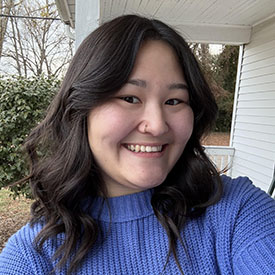

Emma Heinrich
Focus: Nonprofit organization + Justice Informed Work
Emma works for a social justice-focused nonprofit providing after-school and summer therapeutic programming for latency age children. As lead clinician, she builds and implements trauma-informed group therapy curriculum focusing on Attachment Regulation and Competency (ARC) Framework as well as Sensory Motor Arousal Regulation Therapy (SMART.) This program provides children no-cost care in a structured setting focused on teaching emotional regulation and social skills.


Victoria Jackson
Focus: Behavioral Health + Transitional Care Management
Victoria is a behavioral health social worker at the Children’s Hospital of Richmond Emergency Department, where she provides person-centered, evidenced-based transitional care management for pediatric patients requiring community-based mental health supports. With an emphasis of education on mental health care access in Virginia, she prioritizes patient/family choice and engagement and empowers families to coordinate their care in a way that meets their needs. Her work strengthens community engagement and caregiver confidence in advocacy, and reduces ED utilization and risk of family separation.


Rachel Pollock
Focus: Behavioral Health + Serious Mental Illness
Rachel works on the behavioral health unit at a local hospital, where she utilizes anti-racist practices daily in her work with patients. Utilizing empowerment theory, Rachel provides psychoeducation to help clients diagnosed with serious mental illness engage in advocacy for themselves and identify goals that will help them live the lives they want. Rachel notes that part of engaging in anti-racist and empowerment work means ensuring that patients are viewed as experts of their own lives, as they are the ones living it.
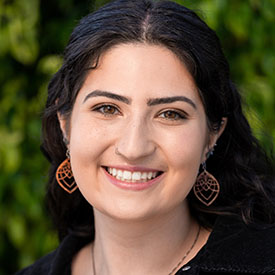

Opal Ritchie
Focus: Private Practice
Opal works at Life Work Therapy, a private practice agency, as a licensed clinical social worker. Opal specializes in generalized anxiety and depression using a trauma-focused lens. Opal believes in creating space for clients to be their authentic self, share their truth and continue their process toward growth and self-awareness. She is committed to facing challenges with her clients, developing their strengths and guiding them on a path to positive outcomes. Opal’s mission is to educate and empower individuals to live an optimal life.
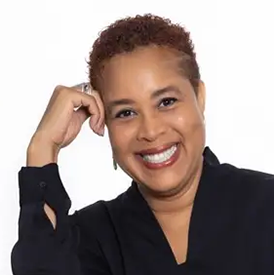

Sammi Santini
Focus: Outpatient Psychotherapist
Sammi is an outpatient psychotherapist at Circle of Wellness Counseling, where she provides trauma-informed, person-centered therapy for adults navigating anxiety, depression, trauma, life transitions and relationship challenges. Her work integrates evidence-based modalities like CBT, DBT, and ACT with mindfulness; somatic exploration; and creative tools such as art, journaling and guided imagery to help clients process trauma, develop coping skills and build resilience. By fostering a collaborative and affirming space, Sammi supports clients in reconnecting with their bodies and creating sustainable practices for growth and healing.
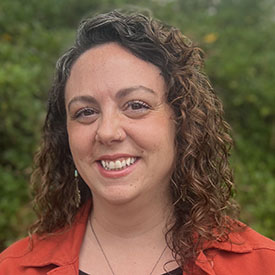

Discover the school's Mental Health Initiatives
The school is meeting the need for training mental health providers and other clinical social workers through innovative partnerships, clinical skills labs, a focus on serious mental illness, new academic minors and certificates, and more. Learn more